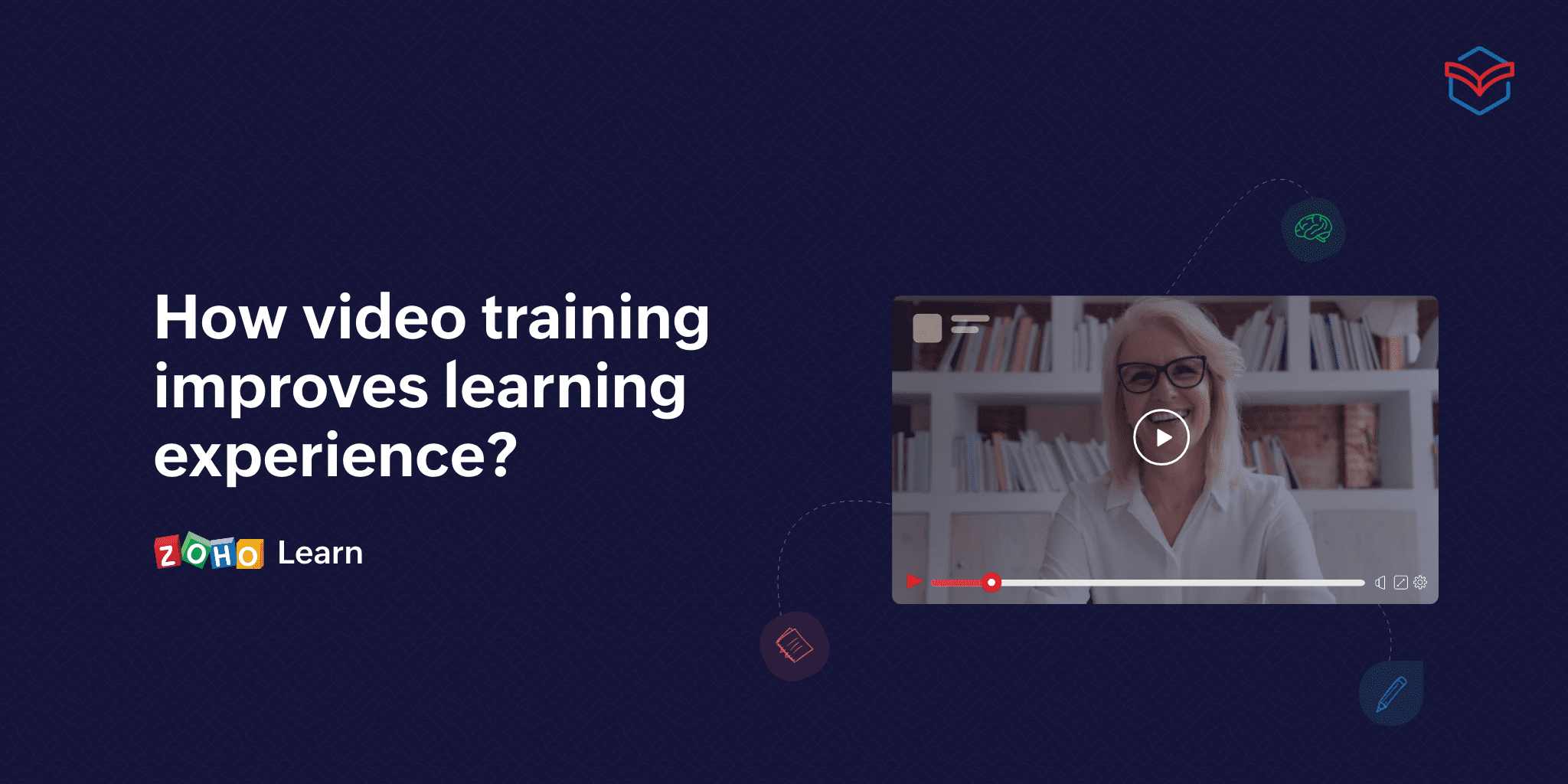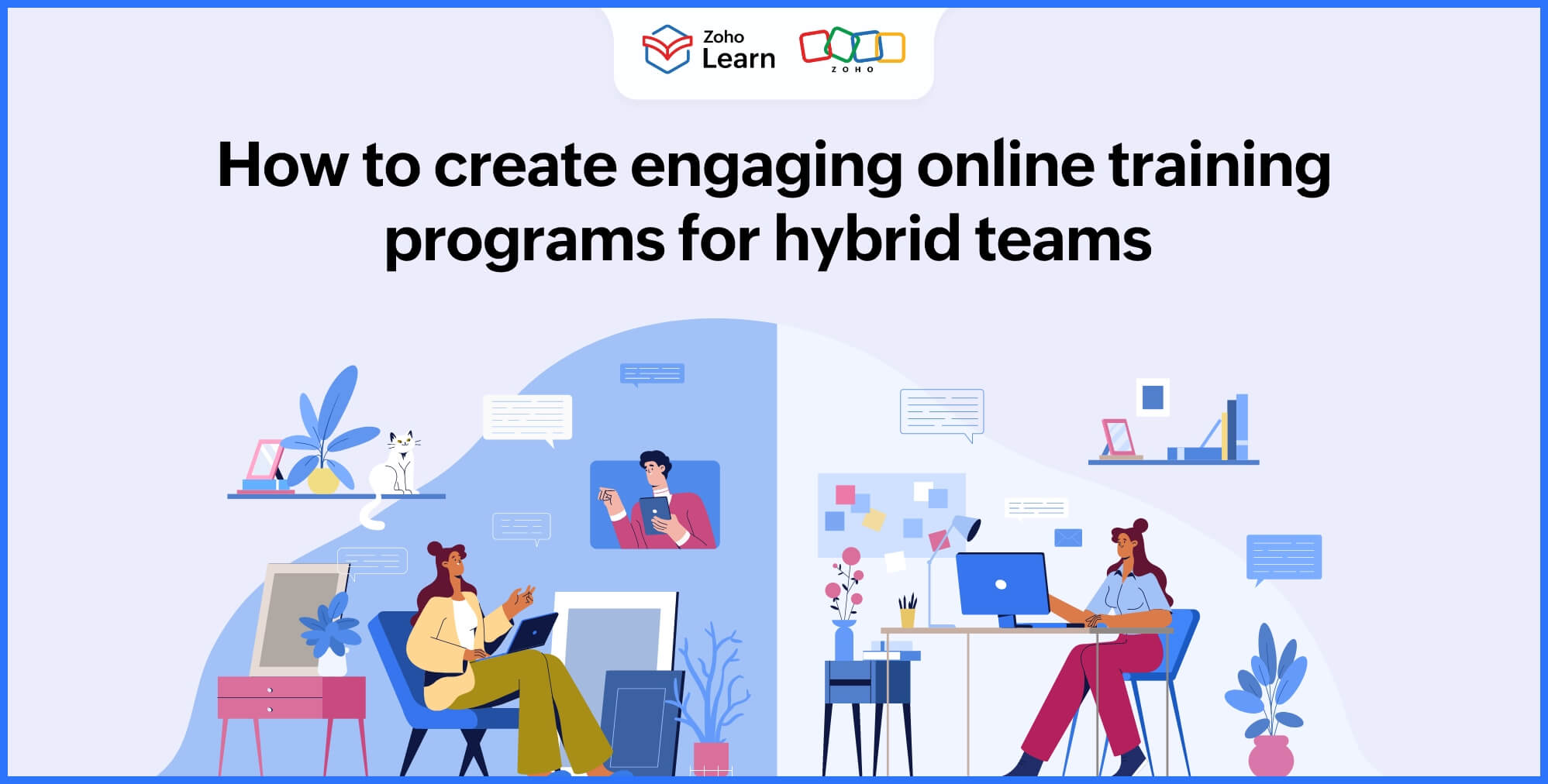How does video training improve the learning experience?
- Last Updated : April 8, 2025
- 761 Views
- 3 Min Read

Course instructors are always looking for ways to create training programs that captivate their audience. In recent times, most instructors in online training have moved away from traditional text-based methods and adopted a video-centric approach because of its greater ability to engage and retain the audience. Combining visual and audio elements helps break down complex information and convey it in an engaging format. Using videos in online training helps learners process information faster. This enhances their experience and maximizes the benefits of online training.
Here are six reasons why you should adopt a video-based approach for your training programs:
Storytelling experience
Most video training programs are supported by voiceover narration. Though the instructions in the video are still a one-way form of communication, they create a personal and more interactive environment for learners. As humans tend to see human faces in everyday objects, learners associate the voice in the video with a human, which creates an immersive storytelling experience. This helps them follow along and understand the concepts better.
Increased engagement
Research shows that 65% percent of the population are visual learners. This means that most people comprehend images and graphics better and more quickly than text. The visual elements in a video lesson enable learners to process information effortlessly. This increases learner participation and helps them stay committed to the training.
Improved knowledge retention
Statistics have shown that 83% of people prefer watching videos for accessing instructional or informational content. This means that learners are more likely to undertake video training than text-based training. Studies have also shown that videos improve the learner's ability to remember small details. Video helps you absorb information more easily and reduces cognitive overload. This increases knowledge retention and improves online training outcomes.
Versatile and flexible learning
Videos can be used for any type of training content, whether it's onboarding, sales training, technical training, compliance training, or other organizational training. The graphics, audio, images, and duration of the videos can be customized to fit the audience and the organization's needs. In contrast to in-person training, videos allow learners to replay sections they don't understand or skip parts they already know. They can also pause a video and come back to it later. This helps learners take control of their learning and complete the training at a convenient pace.
Cost-efficient alternative to classroom training
Building training videos for employees helps instructors achieve the results of classroom training with reduced cost and effort. This also enables remote learning opportunities and helps instructors reach a larger audience at the same time.
Improved accessibility
Providing multiple ways to engage with a lesson allows you to offer training to people with disabilities and neurological disorders. As video includes audio-visual content, it is an effective tool to increase engagement and connect with all kinds of viewers. Captioning video content also helps make training accessible to people with hearing disorders. Learners can work through the training at their own pace to accommodate their physical and cognitive capacities. This helps create a more accessible learning experience with better learning outcomes.
Video training programs have several benefits when compared to other training formats. Understanding your audience is the first step in creating online training videos for your organization. Learning more about your potential audience will help you focus on their experience and use video training strategies that work best for your learners.


